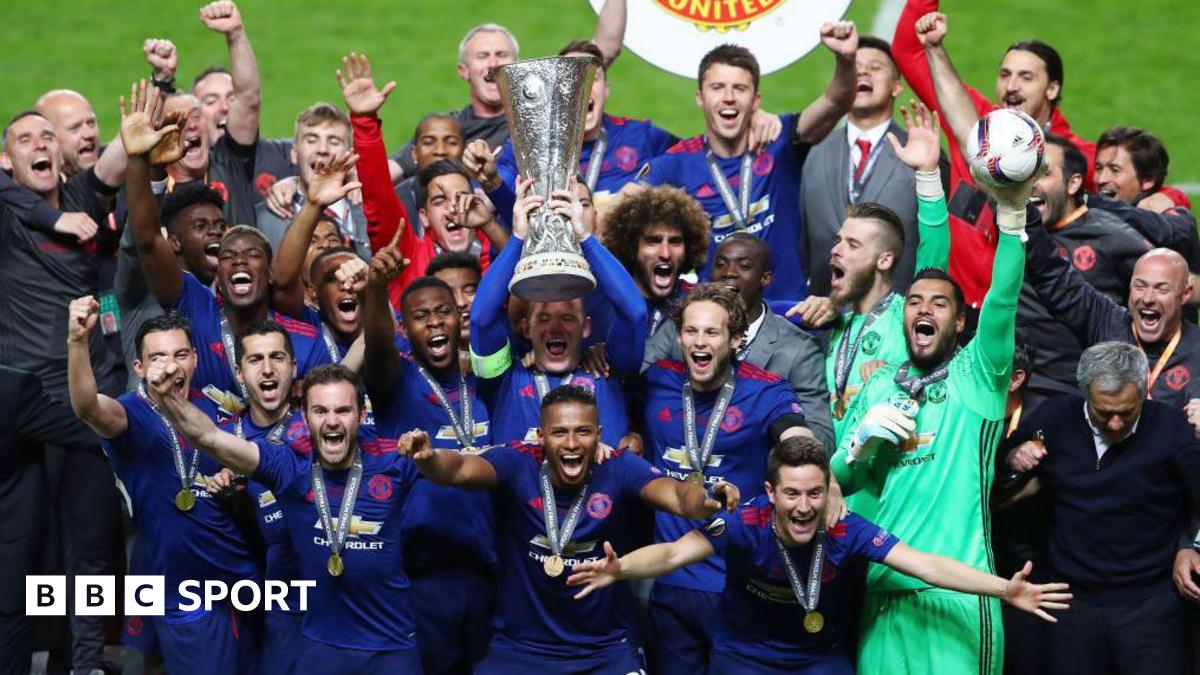For Spurs, the prospect of a first trophy since 2008 is also a chance to salvage something from a desperate Premier League campaign that – just like United – has redefined what domestic failure looks like for a so-called ‘Big Six’ club.
Their season has also featured furious fan protests over a perceived lack of investment by the club’s owner Enic and the approach of chairman Daniel Levy.
“Qualifying for the Champions League would be in the desirable category for Spurs, rather than essential,” says Maguire.
“They are the best-run business in the Premier League. They have the most profits historically. They have an ability to generate money from non-football activities to a far greater extent than any other club, so they’ve always got this as a support mechanism.”
At United, a second consecutive season out of the Champions League means the club will have to pay kit provider Adidas a £10m penalty under the terms of their deal.
Speaking on condition of anonymity, one former senior United figure predicts that the sponsorship revenue the club have prided themselves on over so many years could be at risk of “collapsing” if they are out of Europe for only the second time in 35 years, and that their brand value is now at a pivotal moment.
“Not being a European team creates more existential issues around the whole model” they told BBC Sport, pointing to the end of the Tezos sponsorship of the club’s training kit this summer.
“It’s not healthy, and people start to question whether you are still a ‘big club’. But win, and it keeps the wheels spinning. The cash will be ‘lifeblood’ that allows them to keep trading. If not, they’ll have to look at selling homegrown talent like Alejandro Garnacho and Kobbie Mainoo to give them the funds they want.”
Some United fans travelling to Bilbao will hope the match evokes memories of the 1991 Cup Winners’ Cup triumph – which helped spark the subsequent Sir Alex Ferguson glory years, and showed the club could perform again at a European level.
Others will look to 2017 as inspiration, when Jose Mourinho’s team won the Europa League final to rescue Champions League qualification after finishing sixth in the Premier League. But given how much worse United’s league performance has become, this feels much more significant.
Lose against Spurs, and many will feel that Ineos’ already ambitious Mission 21 plan to turn United into Premier League champions by 2028 could start to look like Mission Impossible. However, senior United insiders dispute the suggestion that this is “win or bust”, insisting that the cost-cutting programme the club are implementing is designed to give flexibility in the summer transfer window, and has been predicated on a ‘no-Europe’ scenario.
While they accept that winning the Europa League would provide a major boost, they say the key is fixing the club’s structure.
Both Amorim and his counterpart, Spurs boss Ange Postecoglou, have played down suggestions that the Europa League offers some kind of panacea. Indeed, with Spurs also on course for their worst-ever Premier League season, victory may not be enough to keep Postecoglou in his job, while Amorim seems secure in his, even if his team loses.
And yet there is no denying that there will still be a huge amount at stake on Wednesday, making this one of the most eagerly anticipated matches of the season.
While the neutrals can enjoy the jeopardy, United and Spurs fans will long for a much-needed sense of hope at the end of a season to forget. Here in Bilbao, a city known for its regeneration, lies a chance to kickstart a revival.
Lose, however, and the road to recovery will feel much longer.
